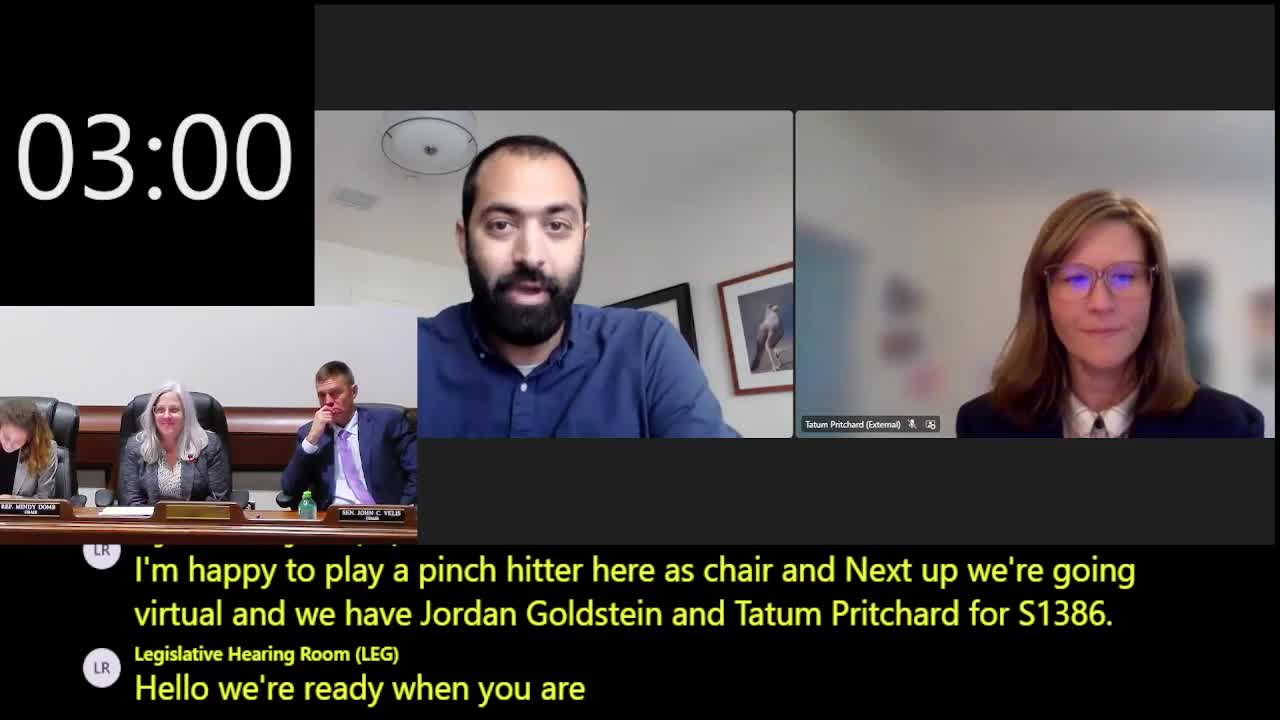Advocates, families and legal monitors urge transfer of Bridgewater State Hospital from DOC to DMH
Get AI-powered insights, summaries, and transcripts
Subscribe
Summary
The Joint Committee on Mental Health, Substance Use and Recovery heard extensive testimony calling for Bridgewater State Hospital to be transferred from the Department of Correction to the Department of Mental Health.
The Joint Committee on Mental Health, Substance Use and Recovery heard extensive testimony calling for Bridgewater State Hospital to be moved from the Department of Correction to the Department of Mental Health.
Jordan Goldstein of the Disability Law Center said, "Bridgewater is a hospital in name only because aside from its prison facility, prison exists in the core and culture of everything that happens there." Tatum Pritchard, legal director at the Disability Law Center, described repeated and, in her words, illegal uses of seclusion, restraint, and involuntary medication and noted that contractors running clinical services have been paid large sums: "based on publicly available information ... the state paid Wellpath Recovery Solutions over $447,000,000 to run Bridgewater." Mental Health Legal Advisors Committee staff and family members described Bridgewater’s conditions as prison-like and argued the population there should be under a health agency’s oversight.
Why it matters: Witnesses said the current DOC oversight results in treatment and safety practices they called inconsistent with standards in licensed psychiatric hospitals and recommended DMH assume responsibility so care is provided under rules governing psychiatric hospitals. Multiple speakers cited racial disparities in the Bridgewater population and the facility’s role in the forensic and civil commitment systems.
Key testimony and examples: Jordan Goldstein described patients calling themselves "inmates" and said security procedures such as frequent use of restraints, locking patients into small cells, and use of restraints during off-site transports create a punitive environment. Tatum Pritchard said Bridgewater admits roughly 1,000 people a year for psychiatric evaluation and that the facility is the only state-run forensic psychiatric hospital operated by a corrections agency in the United States. Alex Beau Rhodes of the Mental Health Legal Advisors Committee said Black and brown men were "greatly overrepresented" at Bridgewater, noting an estimated 40% of the Bridgewater population is Black or African American compared with roughly 10% of the state's population.
Family members and advocates described personal experiences they said demonstrated harm. A family member said their loved one "was so traumatized that he's scrubbing his skin raw and stuffing things in his nostrils to block a smell that isn't there," and other relatives described assaults, mold, and poor living conditions.
Policy and fiscal context: Testimony noted several related proposals: S.1386 would transfer Bridgewater to DMH; advocates also pointed to pending legislation to modernize fundamental patient rights and to oversight bills addressing conditions inside correctional and health facilities. Witnesses suggested that funds now paid to outside contractors could be redirected toward DMH-operated hospital services.
Responses and implementation notes: Panelists discussed several implementation options should the transfer pass: (1) immediate transfer of oversight with DMH retraining and review of existing staff and contractors; (2) immediate statutory transfer while retaining the current contractor under new compliance requirements; or (3) a phased transfer with a future effective date to allow DMH planning time. Witnesses acknowledged facility infrastructure and workforce concerns but said those challenges weighed in favor of the policy change rather than against it.
What the committee heard but did not decide: The hearing recorded testimony and questions but included no formal committee votes during the session. Committee members asked about who is admitted to Bridgewater (pretrial detainees, persons found not guilty by reason of mental illness, civilly committed patients and some county correctional referrals) and about capacity, workforce and costs.
Ending: Advocates, monitoring organizations and family members urged the committee to report S.1386 favorably so the facility would be managed by the agency statutorily charged with providing psychiatric hospital care.
